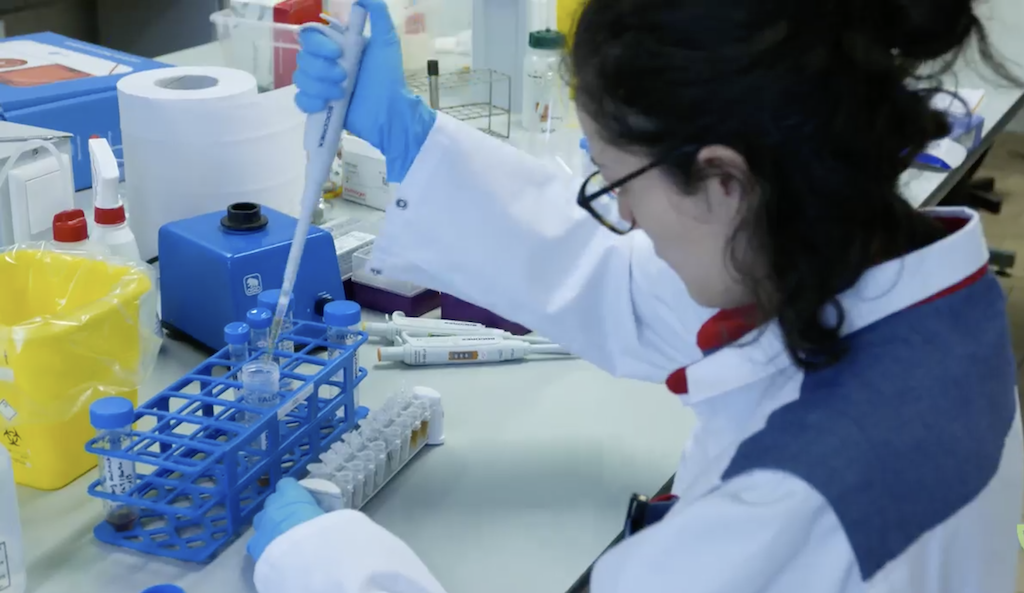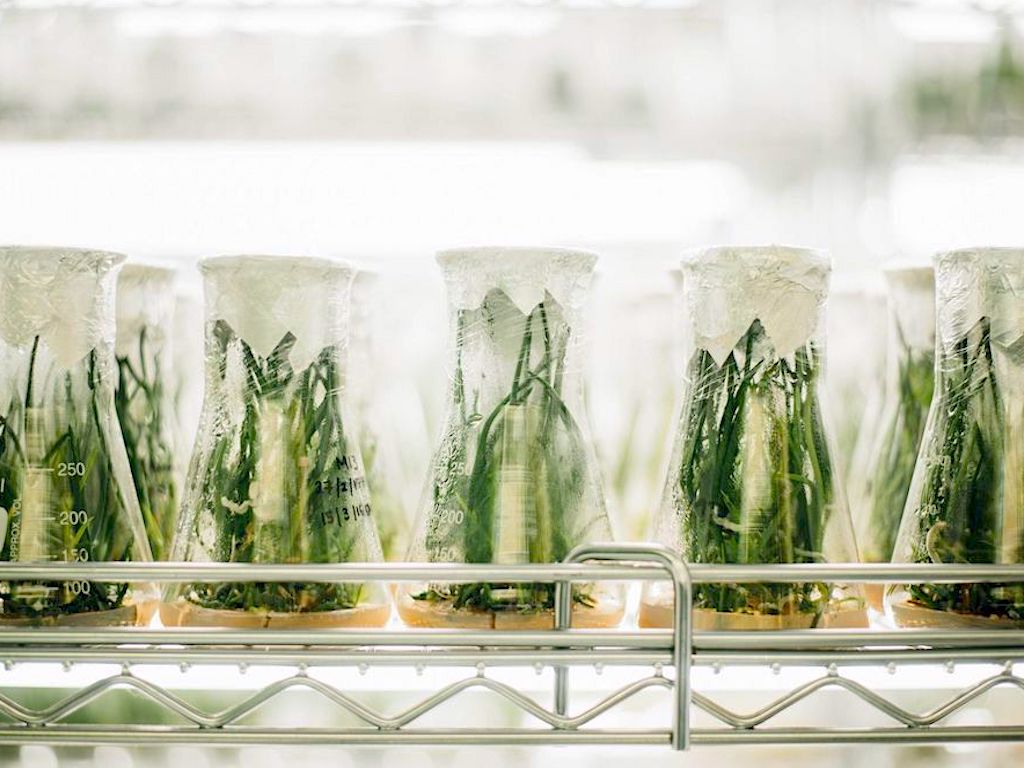3 Mins Read
Based out of Brussels, Tiamat Sciences is on a mission to make cultivated proteins a reality. Currently, cell-based food techs have developed prototypes of lab-grown meat, from seafood to beef, but have yet to overcome one key obstacle in the race to bring these products to market – a cost-effective cultured medium. With their plant-based molecular farming technology, the Belgian startup hopes to solve this problem.
Cell culture medium, growth factors and other building block ingredients to develop lab-grown proteins currently account for as much as 80% of the production cost. Founded in 2019 by France-Emmanuelle Adil and Clément Carlier, Tiamat Sciences wants to slash this cost, which will be a huge step in helping companies scale-up to mass production and to make cultivated meats cost-competitive on the market compared to their animal counterparts.
Using plant-based molecular farming technology to manufacture recombinant protein ingredients, such as enzymes, antibodies, scaffolding and growth factors, the startup says that their solution costs as much as 60 times less than their current competitors, which currently rely on expensive fermentation bioreactor technologies with high energy costs due to cleaning and sterilising such infrastructure.
Dubbed “PlanTech”, Tiamat Sciences’ solution is created with a customised plant vector and a pathogen that naturally infects plants and then grows its proteins. After a couple of days, the plants can be harvested and proteins extracted and purified to obtain the ingredients needed to grow cultivated meats.

They have plans to license out their technology and help manage internal production facilities to other food techs, with 6 partnerships with cultivated companies already in the pipeline. By 2040, the startup hopes to be able to supply half of the market’s cell culture media and other ingredients and aim to have their production facility launched next year.
This could be a major forward to help scale-up these products towards market readiness. Alongside plant-based substitutes, which have already become hugely popular amongst consumers globally, cultivated proteins are one of the core food technologies that will help bring about a more sustainable, ethical and safe food system.
Raising livestock for meat and dairy generates around 18% of global greenhouse gas emissions – more than all transportation combined – and uses around 70% of agricultural land, in the process driving destructive practices such as deliberate deforestation, as well as contributing to biodiversity loss and water pollution.

Tiamat Sciences is not the only team in the emerging cultivated protein category to harness plants for the development of lab-grown meats. In a recent study, food science researchers found that textured soy protein, the cheap byproduct of extracting soybean oil, can be a key 3D scaffolding building block to help recreate the texture of a meat bite in lab-grown beef. It represented a key step towards replacing the gelatin-derived scaffolding that had typically been used by lab-grown meat developers in the past.
As food security and safety concerns become key priorities amid the coronavirus pandemic, governments are now looking at cultivated protein as a solution to not only reduce carbon emissions, but to shield external supply shocks.
In June, the Chinese national advisory body discussed cell-based meat development as a potential key to ensuring the future of China’s protein supply, while Japanese authorities announced plans to introduce legislation for the industry, with the view to push forward mass industrialisation and production of alternative proteins in the country.
It followed moves by the Singapore government, who recently announced a S$30 million (US$21 million) fund to boost local food production, which will support food tech ventures working on local rooftop farms and plant-based and cultivated startups.
All images courtesy of Tiamat Sciences.




